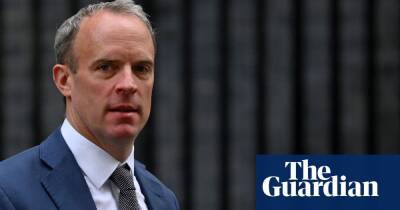The Observer view on the cost of living crisis
Living standards are set to fall at their fastest rate since records began in the mid-1950s. Last month, the Office for Budget Responsibility predicted that real household incomes will fall by 2.2% this year, as energy and food prices increase but wages fail to keep pace with rising bills.
The impact will not be felt equally. For some, it will barely register. For other families, it will mean difficult decisions about what to cut back on. For others still, it will be profound, stretching precarious budgets in which there is already no give, forcing impossible choices between essentials such as putting food on the table and keeping the heating on, and sharpening the fear of the unexpected outlay that can trigger a debt spiral from which there is no escape. One estimate suggests lower-income households will face a drop in income of £1,300 this year.
Last week, the latest thinking from ministers on how to address this crisis in living standards trickled into the headlines after a cabinet “brainstorming” meeting. Grant Shapps, the transport minister, proposed moving car MOTs from once a year to once every 24 months, saving a one-car household a paltry £23 a year, at the risk of jeopardising road safety. The education secretary, Nadhim Zahawi, suggested increasing the maximum number of children an early-years worker can be responsible for in order to modestly reduce the cost of childcare. Others around the table reportedly suggested unilaterally scrapping tariffs on food imports, which would weaken Britain’s hand in trade negotiations, and scrapping government commitments to reduce carbon emissions, a move that would create significant long-term economic and environmental costs for the UK.
The shallow suggestions reveal the
Read more on theguardian.com







![Solana [SOL] is back below $50 and here’s what investors need to do - ambcrypto.com](https://finance-news.co/storage/thumbs_400/img/2022/5/25/27025_etm.jpg)








